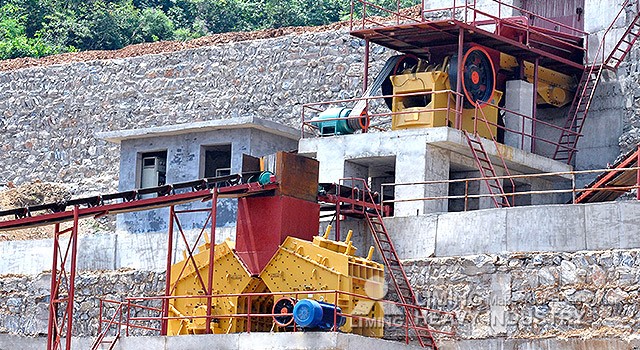Impact Crushers: What Materials Are They Best Suited For?
Choosing the right crusher is crucial for the efficiency and profitability of any quarry or construction project. While jaw and cone crushers rely on a compression method to break down rock, the impact crusher uses a fundamentally different principle. This machine shatters materials by using high-speed rotating blow bars that strike and hurl rock against a series of fixed impact plates.
This violent, high-energy process is not suitable for all materials. Its effectiveness depends entirely on the physical properties of the feed rock. Understanding this relationship is the key to maximizing impact crusher applications and achieving a high-quality, profitable end product.

Ideal Materials for an Impact Crusher
The unique design of an impact crusher makes it the perfect choice for a specific range of materials.
- Soft to Medium-Hard Rocks: The primary and most common application for an impact crusher is the crushing of softer, less abrasive materials. These rocks have a lower compressive strength, allowing them to break easily upon impact. Examples include:
- Limestone
- Gypsum
- Dolomite
- Coal
- Non-Abrasive Materials: The high-speed striking action of an impact crusher would cause rapid wear if used on highly abrasive materials. The ideal materials are those that are not only soft but also relatively non-abrasive. This minimizes the wear on the blow bars and impact plates, significantly extending their lifespan and reducing maintenance costs.
- Recycled Materials: A major and growing area for impact crusher applications is in the recycling of construction and demolition waste. The impact method is exceptionally good at:
- Concrete Recycling: It effectively breaks down concrete and helps to separate rebar from the material.
- Asphalt Recycling (RAP): It efficiently processes asphalt pavement, producing a high-quality recycled product for new road construction.
Why the Impact Crusher Is the Right Choice
For the materials listed above, an impact crusher offers significant operational advantages.
- Superior Product Shape: The very nature of the impact crushing method creates a final product with a high percentage of cubical aggregate. This desirable shape is essential for high-quality concrete and asphalt mixes, as it improves compaction and overall strength.
- High Production Rate: Impact crushers are capable of handling a very high throughput of suitable materials, leading to impressive production rates and improved operational efficiency.
- Simplified Crushing Process: In many aggregate production circuits, an impact crusher can perform both secondary and tertiary crushing in a single machine, streamlining the process and reducing the need for additional equipment.
Materials to Avoid with an Impact Crusher
It is just as important to know what materials an impact crusher is not suitable for. Highly abrasive and hard rocks, such as granite, basalt, and quartz, should be avoided. The impact on these materials would cause excessive wear on the blow bars, leading to frequent and costly replacements. For these applications, a robust jaw or cone crusher, which uses a compression method, is a far more suitable and cost-effective solution.
In conclusion, an impact crusher is a specialized and powerful tool. By understanding its strengths and choosing the right impact crusher suitable materials, operators can achieve a level of efficiency and product quality that is unmatched, making it a cornerstone of modern quarrying and recycling operations.
- > Efficient GZG Series Vibrating Feeder for Metallurgy: A Key Component in Modern Industrial Processes
- > Cone Crusher in Metal Ore Beneficiation Production Line
- > The Versatility of Cone Crushers: Material Processing Range and Applications
- > Application of PE-600×900 Jaw Crusher in Railway Ballast Production Line
- > The Role of Cone Crushers in Indonesia’s Mining and Construction Industries
- > Equipment Configuration Recommendations for a 50 TPH Stone Crushing Plant
- > High-Efficiency Jaw Crusher for Coal and Basalt in Indonesia
- > Applications of Mobile Dolomite Cone Crusher in Malaysia: A Comprehensive Overview


Online




Message
